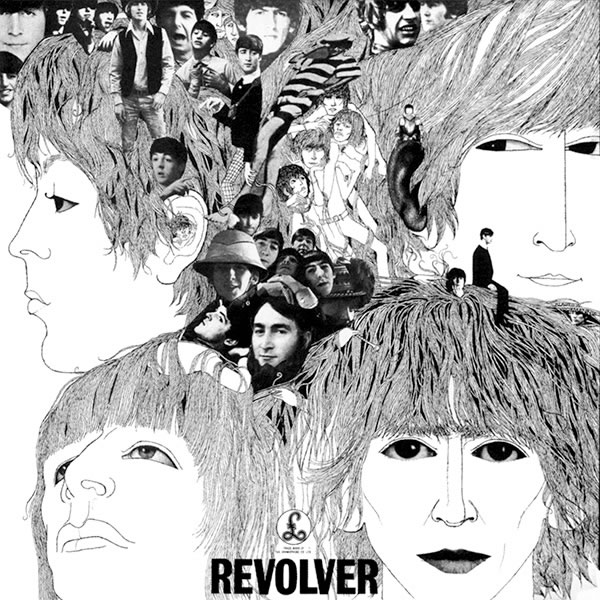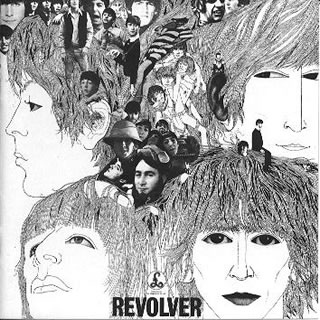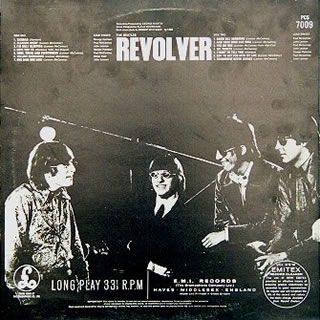|
Previous / Next
UK album |
 |
Revolver
First released: 1966, August 5 Buy
|
| Covers |
|---|



|
| Additional information | ||||||||||
|---|---|---|---|---|---|---|---|---|---|---|
Songs recording date and information:
Revolver is the album which, by common consent, shows the Beatles at the peak of their creativity welding very strong, economical but lyrically incisive song material with brave studio expermentation. Today, in the late 1980s, it remains one of those rare albums which is albe to retain its original freahness and vitality. Revolver is a pop masterpiece. Hindsight also affords us the opportunity to see Revolver as the vital lateau between the Beatles' touring activities and what was to become known as their 'studio years'. Although the group had been immensely productive at Abbey Road since 1962, recording the best and most evocative songs of the era, their output had always been worked around other activities, principally inter-continental concert tours, films and marketing stratefies like four singles per year and an album at Christmas. But the Beatles had grown to loathe their concert appearances, sub-30 minute blasts to a distant sea of Beatlemaniacs, forever stufked by screams of adoration through which only rarely could they hear themselves play. In the recording studio the Beatles were striving increasingly for innovation and perfection. On stage they were injecting the basic minimum of care, playing out of time and tune and fluffing lyrics. Worse still, they knew that if their audience could hear the screaming and adulation would not diminish one jot because the fans were there merely to pay homage to the group, not hear the music. For four rapidly growing musicians it was an anathema they could no longer bear. The Beatles' very last concert tour commenced in Chicago on 12 August 1966. As ludicrous as it may seem by today's standards - where most artistes tour only to promote a new album - the Beatles did not perform a solitart song from Revolver , released just four days earlier in the USA (and just seven days earlier in the UK). Paperback Writer was included but that was the only concession to 1966, the other songs including I Wanna Be Your Man , Long Tall Sally and Baby's In Black , all a mere two or three years old but an eternity in the history of Beatles recordings.The problem was that three guitars and a drum kit couldn't oissubky reproduce Tomorrow Never Knows on stage. THe punning Revolver was just one of a number of potential album titles the Beatles toyed with before they cabled EMI with their final decision from Japan [where they were giving concerts] on 2 July. It could have been 'Abracadabra' but that had already been used by someone else. 'Magic Circles' and 'Beatles on Safari' were other alternatives. Both Revolver and the single Eleanor Rigby / Yellow Submarine were number one hits worldwide. The latter was another double A-sided disc, Ringo thus securing his first lead vocal on a UK Beatles single. - Mark Lewishon "The Beatles Recording Sessions"
|
